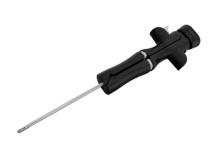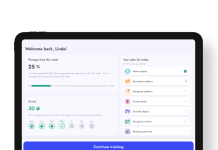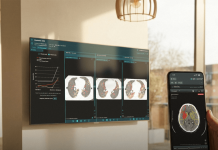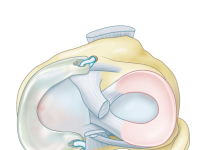Noah Medical announced that it raised $150 million in a Series B funding round to help meet the rising demand for its surgical robot.
The Softbank Vision Fund led the oversubscribed round, while Prosperity7 Ventures co-led. It also included investments from Tiger Global, plus existing investors Hillhouse, Sequoia China, Shangbay Capital, Uphonest Capital, Sunmed Capital, Lyfe Capital, 1955 Capital and AME cloud ventures. Undisclosed strategic investors also participated.
San Carlos, California-based Noah Medical plans to use the funds to support its Galaxy System as demand increases. The company received FDA clearance for Galaxy for robotic-navigated bronchoscopy last month. Galaxy and its accessories provide bronchoscopic visualization and access. These capabilities provide diagnostic and therapeutic procedures in patient airways.
The system features advanced imaging technologies that provide real-time location updates for potentially cancerous lesions. Noah says it designed the technology to improve tool-in-lesion and diagnostic yield.
“We are a mission-driven startup and appreciate our investors’ support to allow us to scale and deliver on the future of medical robotics,” said Jian Zhang, Noah Medical founder and CEO. “Next-generation robotics platforms like the Galaxy System are filling procedural gaps to provide superior clinical values to better serve customers’ needs. We are excited to welcome these investors to the team and are eager to grow and serve even more patients and clinicians.”
Noah Medical featured as one of our companies to watch in the surgical robotics space this year.
RELATED: Distalmotion raises $150M to accelerate FDA approval and clinical experience
More on Noah Medical and the Galaxy System
Noah announced plans for its Galaxy System in March 2022 when it unveiled two new research centers in California.
The company announced a 10,000-square-foot facility in Sunnyvale, California and a 15,000-square-foot R&D facility in San Carlos. Noah said it aimed to pursue new medical robotics indications with these new facilities. That included the Galaxy System, Noah Medical’s first commercial robot surgery offering.
Galaxy features TiLT Technology with integrated tomosynthesis and augmented fluoroscopy. It includes an always-on-camera bronchoscope for direct visualization during the entire procedure, including at the time of biopsy.
The system’s purpose-built four-way bronchoscope articulation enables navigation to “even the most peripheral lesions,” Noah said. It marks the only robotic navigated bronchoscopy system on the market with a single-use, disposable bronchoscope, the company added. Noah designed this intentionally to improve efficiency and workflow while potentially reducing cross-contamination risks.
Zhang founded Noah Medical in 2018, having departed Johnson & Johnson’s Auris in 2015. He and Noah Medical are currently subject to litigation from Auris, which alleges the misappropriation of trade secrets. Noah Medical has filed a motion to have the lawsuit dismissed.




